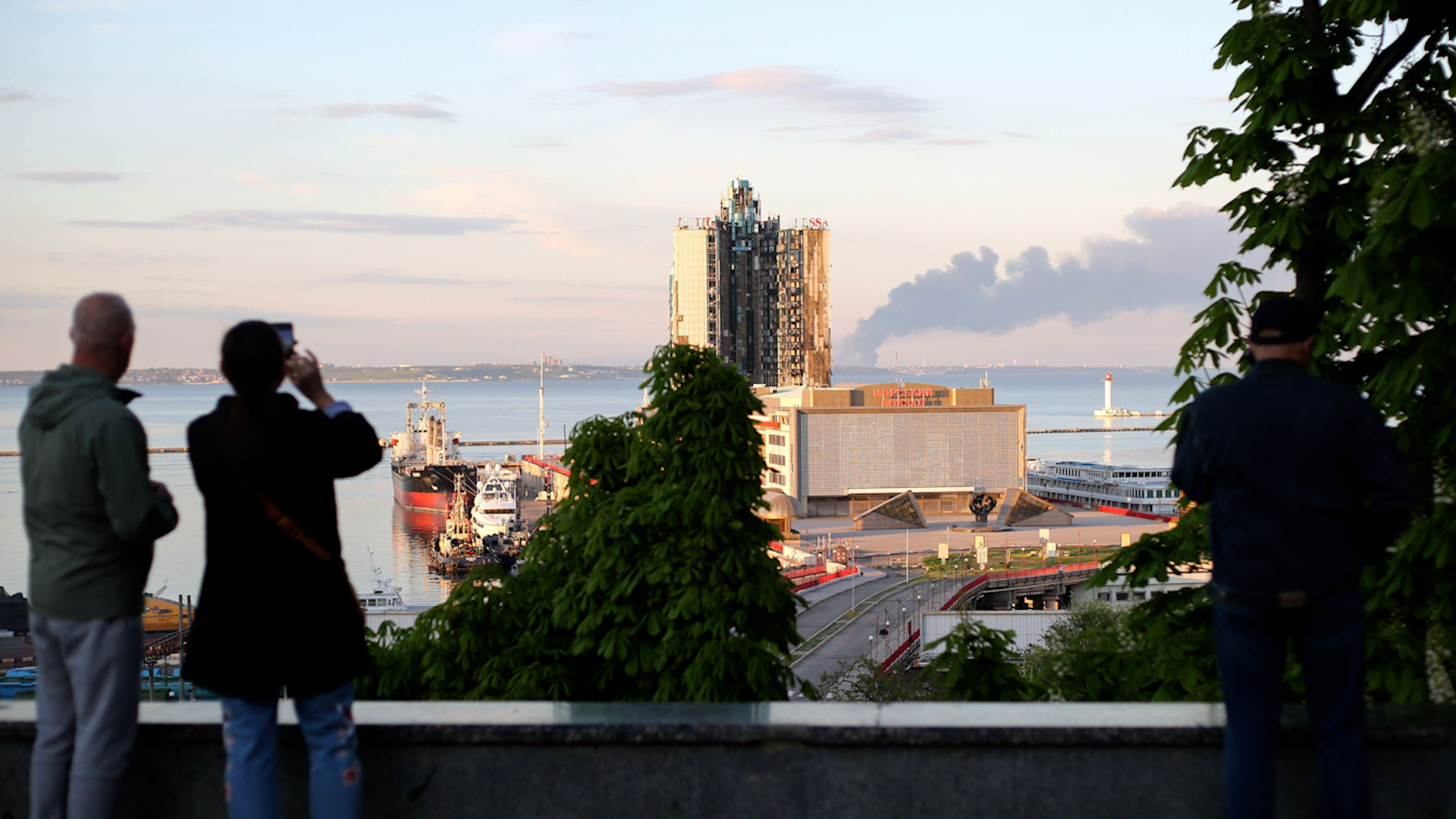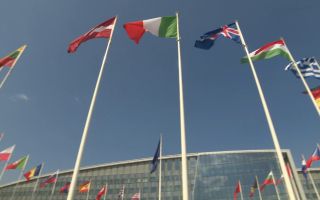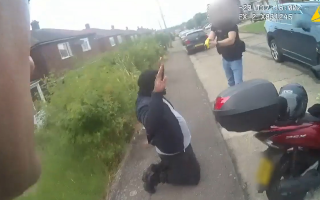
Why is Russia launching so many missile strikes on southern Ukrainian port of Odessa?

When Moscow invaded two years ago, Russian troops raced for Kyiv which at the time was the main prize – one they expected to capture in days.
Meanwhile Odessa, known as the Pearl of the Black Sea, was left largely unscathed.
As the country's third largest city, it has long been the main economic link between Ukraine and the outside world.
The three ports that surround it are the nation's largest and the only deep-water moorings in the country.
Before the war, 70% of Ukraine's imports and exports were shipped by sea, including 6.5 million tonnes of grain a month from Odessa.
To try to cripple Ukraine's economy, Vladimir Putin put the city under a naval blockade.
But Ukraine retaliated, carrying out repeated attacks on the Russian navy using long-range missiles and sea drones.
The tactic proved very effective, with Kyiv claiming a third of all Russian ships in the Black Sea were hit or disabled.
Moscow responded by exiting the so-called 'grain deal' that protected ships travelling to and from Ukraine's Black Sea coast.
It also moved its fleet east, away from Sevastopol to ports like Novorossiysk on the mainland.
Instead, it began bombing the city, targeting Odessa with ballistic missiles and – according to Kyiv – cluster munitions.
The Russians have relentlessly targeted the port infrastructure, but also other sites including a postal depot and even a prominent Ukrainian politician's home, nicknamed the 'Harry Potter Castle'.
Five people were killed and 32 injured in the most recent attack.
It came just a day after Russia signed a UN-brokered deal to allow grain exports from Ukraine, an agreement designed to ease the crisis in world food prices.
One of the heaviest strikes took place in March when Russian missiles hit homes in the city, killing scores of civilians.
When emergency services reached the scene, a second missile struck – a so-called ‘double tap’ – taking many of their lives too.
More than 20 people died, with a further 70 injured.
For Vladimir Putin, Odessa is both symbolically and strategically important.
It was once home to a large Soviet naval base and most residents have traditionally spoken Russian.
Also, in 2010 many in this part of Ukraine voted for Victor Yanukovych, Ukraine's former pro-Russian president.
Odessa's diverse population is certainly seen by Moscow as a characteristic it can exploit.
In 2014, after Russia annexed Crimea, there were riots between pro-Russian and pro-Ukraine groups in Odessa which left 40 people dead.
The city is also close to the Transnistria region, an ethnically diverse strip of land between Ukraine and Moldova – another reason Vladimir Putin sees Odessa as a prize he would like to take.









